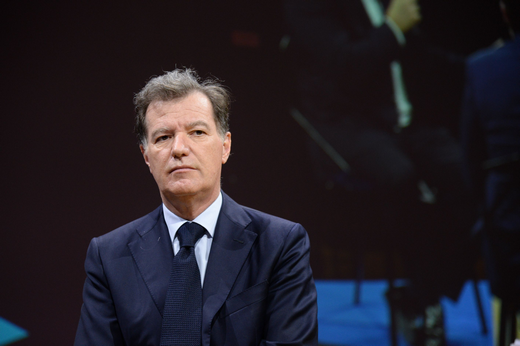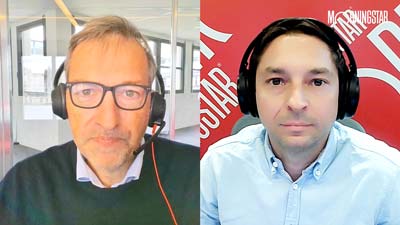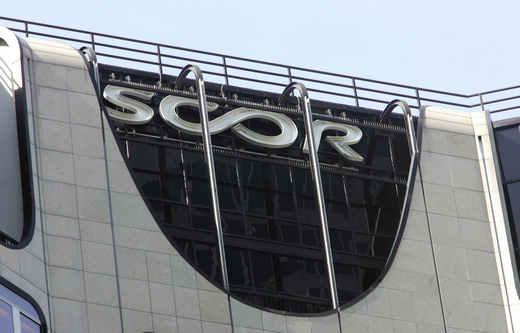Après une série d'acquisition, Berkshire Hathaway a encore des munitions pour réaliser quelques "deals" de taille. La récente acquisition de Kraft Foods par Heinz en est une illustration. D'autres pourraient suivre.
Retranscription de la vidéo:
Jeremy Glaser: For Morningstar, I'm Jeremy Glaser. We're getting ready for the 2015 Berkshire Hathaway Annual Shareholders Meeting. Warren Buffett is, of course, always looking for acquisitions, and he found quite a few this year. I'm here with Gregg Warren--he is a senior equity analyst and also our Berkshire analyst--to look at some of the deals that he has done so far and what he could be looking to do in the future.
Gregg, thanks for joining me.
Gregg Warren: Thanks for having me.
Glaser: So, can you give us a quick rundown on some of the big deals that Buffett made at the Berkshire level this year?
Warren: If you go back to last year's annual meeting, they announced the AltaLink deal, which is a Canadian electrical-transmission firm; they paid about $3 billion for that. And that really lifted the amount of spending on the energy-utilities segment, because they bought NV Energy back in 2013 for about $6 billion and we had kind of expected to see more energy-related deals as the year rolled on.
Greg Abel has been pretty active over the last decade between buying up some distressed assets in solar, putting a lot of [capital expenditure] to work in wind energy, but also picking up other assets here and there. So, we were looking for things along those lines. We're a little bit surprised, though, because Berkshire threw us a few curveballs as the year progressed.
They bought an auto dealership in October of last year; they followed that up with a big stock swap of P&G (PG) stock for Duracell. Then, as they came into this year, they announced the acquisition of a German motorcycle apparel and [accessories] retailer, which was, again, a bit of curveball. And then they followed that up more recently with the announcement that they were merging the Heinz holdings that they had bought with 3G Capital with Kraft (KRFT).
Glaser: So, with all of these somewhat heterogeneous deals, is it easy to say that generally they're paying a fair price for these? Or are there any that seem particularly accretive, some that seem destructive?
Warren: Overall, it seems like they're paying a fairly decent price for everything involved. The deals are all a little bit unique. With Van Tuyl, the auto dealership, they're picking up a business that's operating in a highly fragmented industry. This particular company is the largest private auto dealership in the U.S. We think it's going to be a good opportunity for Berkshire to put additional capital to work as time goes on. But our auto analysts actually feel like the dealership piece of the business is the best positioned, overall, from a competitive-advantage positioning.
With the P&G and Duracell deal, it's really interesting because this is more of a tax-swap kind of deal like they did with Phillips 66 and Graham Holdings. They're taking stock--in this case, P&G--that has extremely low cost basis and they're using that to acquire operating assets.
We're not typically big fans of the battery business. We don't feel like it's really moaty. It's capital intensive and very, very competitive; but if they make decent enough returns off of this business and avoid the tax consequences of having to sell the P&G stock at some point, we think it's a good move. It's more, in our view, sort of a portfolio-rebalancing situation.
The German motorcycle apparel and accessories business--it's a retail operation. We're not really sure what to think of that yet. What we do view it as is sort of a wake-up call to Europe--Buffett grabbing the headlines and saying, "Hey, we're here; we're available to do deals." So, I think from that perspective, it's more of a headline grabber than it is something that's really consequential to the entire portfolio.
And then Kraft-Heinz: We think it's a very good deal for both parties involved, and there is definitely cost savings there. There's potential for new-product growth. There is also the potential for Kraft's products to be pushed out through the Heinz global distribution network. So, overall, we think that all of these deals have been well executed.
Glaser: On that Kraft-Heinz deal, Buffett is teaming up with 3G Capital again. Do you expect that this will kind of be the framework for future deals--either with 3G or other partners versus Buffett going out at it alone?
Warren: I think, with 3G, Buffett has found a partner that he can work with; he and Jorge Lemann go back a long way. They both served on the Gillette board years and years ago. So, I think, from that perspective, he's comfortable. I think that the makeup of the partnership also works to Berkshire's advantage. They basically act as the bank; they are putting up a lot of the capital for these deals. They leave the running of the operations to the guys at 3G. They basically have outsourced the overseeing of the management to their partners in this case. So, I think, from that perspective, it really works in their favor, and I can see them doing more deals as time goes on.
Glaser: Looking ahead, then, you mentioned you were surprised there weren't some more energy deals. Would you expect energy is on Buffett's radar? What do you think they are looking at?
Warren: Yeah, I think energy is definitely still on their radar. We talk with our analysts here, and there are a few names that pop out--Westar and Calpine are two of them--that potentially could be picked up and bolted on to the rest of Berkshire Hathaway's energy businesses.
We also think that Kansas City Southern would make a decent acquisition for Burlington Northern. We asked a question about that at last year's annual meeting. Buffett didn't really seem too enthused about it. There are some regulatory hurdles that would have to be gotten through; but at this point, most markets in the U.S. for railroads are operating at duopolies, if not monopolies. And the case could be made for some combinations as we move forward with relatively little of the assets having to be sold off to meet the regulators' concerns.
Then, when we look at the rest of the businesses, there are probably going to be some deals done here and there. It's hard to really pinpoint where they may end up going. I probably would argue that any food deals going forward are going to be limited. Nestle is already grumbling a bit about the Kraft-Heinz combination. I think it would be harder for them to do a large-scale deal in the food business that wouldn't run up against the FTC for some reason.
Glaser: Berkshire still has this giant strong cash hoard, even after making these acquisitions. It sounds like they're trying to do a lot of deals, but there just aren't any enormous deals out there. Are they really under pressure to put this cash to work or is it OK to have it sit and wait for the right opportunity?
Warren: They closed out last year with about $63 billion in cash on the books. If you strip out the $20 billion that they like to have on hand for the insurance business, and then you extract what they end up paying out for the other things that they've been involved in, you're still looking at somewhere in the neighborhood of around $30 billion in excess cash sitting on the books. I've always felt that Buffett has the best of both worlds. He's got a business that throws off a lot of cash, and he also has the luxury of being able to be patient. He doesn't have shareholders clambering for him to pay a dividend; he doesn't have shareholders clambering for him to buy back stock. So, he can sit on cash until he finds the best available deals that are out there, and he's got the discipline to not overpay.
It's frustrating to sit here and watch all that cash sitting on the books and know that it's earning nothing right now. But I think the opportunity cost is overcome by the fact that it would be available for them to do a lot of small or mid-sized deals and potentially do a large deal.
Glaser: Gregg, thanks for your thoughts today.
Warren: Thanks for having me.
Glaser: For Morningstar, I'm Jeremy Glaser. Thanks for watching.





















